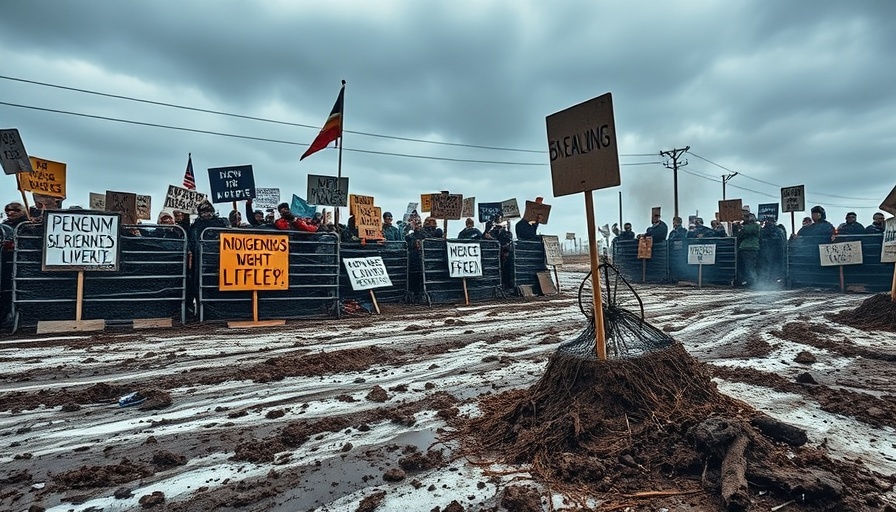
The Historic Verdict
In a landmark decision, a North Dakota jury has ruled against Greenpeace, ordering the environmental organization to pay over $660 million to Energy Transfer, the company behind the Dakota Access Pipeline. This sweeping verdict marks a significant moment in the ongoing conflict between environmental activists and corporate interests. From 2016 to 2017, the Standing Rock protests drew global attention, showcasing indigenous rights, environmental concerns, and the impact of fossil fuel infrastructure on local communities. The jury found Greenpeace liable for defamation, signaling a shift in how courts view environmental activism.
Background: The Standing Rock Protests
The Dakota Access Pipeline has been contentious since its inception, with the Standing Rock Sioux Tribe and environmentalists arguing that it threatens water sources and sacred land. Greenpeace's involvement catalyzed these protests, but their actions have now led to substantial legal repercussions. The protests put a spotlight on systemic issues within the fossil fuel industry, raising questions about environmental justice and corporate accountability.
Defense of Free Speech: The Implications of the Verdict
Following the verdict, Greenpeace intends to appeal, emphasizing the case as a threat to free speech and assembly. "This is the end of a chapter, but not the end of our fight," said Sushma Raman, interim executive director of Greenpeace Inc. Environmental advocates warn that such legal actions are strategically designed to silence dissent against corporate practices. Legal experts consider the ruling a potential catalyst for further legal challenges against activist organizations.
Corporate Interests vs. Activism: A Growing Tension
Energy Transfer's victory is seen by many, including the company itself, as a win for law-abiding citizens. The company claims that the financial repercussions were necessary to counteract the disruption caused by Greenpeace-funded protests. Yet, critics argue that this case underscores a growing trend of 'corporate weaponization' of the legal system, revealing a harsh landscape in which companies may seek financial penalties to inhibit activist voices. As Environmental Law expert Rebecca Brown points out, such tactics threaten both environmental justice and democratic freedoms.
National Impact and Future Trends
The ramifications of this court decision are likely to extend beyond North Dakota. Greenpeace's case could set a precedent for similar lawsuits against other environmental organizations across the United States. As awareness of environmental issues continues to rise, this verdict might deter participation in protests and activism, impacting how communities advocate for environmental protection. As the legal battles loom, the public will be faced with challenging questions surrounding the balance between corporate rights and the rights of individuals to speak out against environmental harm.
A Broader Spotlight on Environmental Justice
This lawsuit is not just a legal matter; it symbolizes a broader struggle for environmental justice. It forces us to evaluate who holds power in environmental discussions and whose voices are marginalized. The outcome can either empower communities to continue fighting for environmental health or create a chilling effect that deters activists from voicing legitimate concerns. As debates surrounding climate change and corporate accountability intensify, the legal landscape will play a crucial role in shaping future activism and community engagement.
Take Action for Environmental Advocacy
As a reader and supporter of environmental causes, consider how you can contribute to the dialogue surrounding justice and activism. Communities all around the U.S. are standing up against corporate overreach, and your involvement could be pivotal in fostering future change. Stay informed, engage with local groups, and advocate for policies that protect both the environment and free speech. The battle over rights to protest is far from over, and every voice counts in the fight for environmental equity.
 Add Element
Add Element  Add Row
Add Row 



Write A Comment